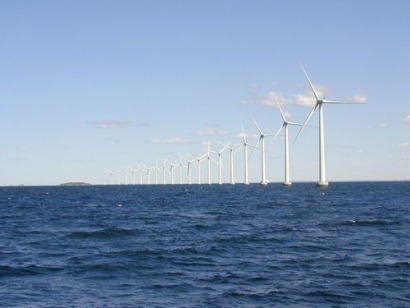
The new offshore transmission licensing system for offshore wind farms is in danger of becoming an oligopoly warns a new report from the Committee of Public Accounts, a cross-party body responsible for reviewing the cost effectiveness of government policy.
The committee says the terms of new offshore wind transmission licences appear to have been skewed in favour of investors rather than securing a good deal for customers. This in turn could lead to higher retail prices for renewable electricity. The deals are worth around £17 billion and according to The Daily Telegraph were agreed by Ed Milliband during the term of the last Labour government and subsequently implemented by the coalition.
DECC and the Gas and Electricity Markets Authority have essentially established a new regime that licenses operators of offshore electricity transmission assets following a competitive tender process. The transmission operators receive income from the national grid which then recovers its costs from suppliers and generators. The payments to licensees will be passed on to customers through electricity bills.
The UK Department of Energy & Climate Change (DECC) believes that offshore wind farms could contribute up to 15% of the country’s electricity needs by 2020 thereby greatly assisting the government’s attempts to meet renewable energy targets. However, investment of around £8 billion will be needed in the transmission infrastructure in order to bring power from offshore wind farms onshore for distribution on the national grid. The new offshore transmission licences will guarantee investors a return, linked to the retail price index measure of inflation, for 20 years irrespective of whether their assets are used or not.
“Future payments to licensees are estimated at around GBP17 billion pounds, and this will ultimately be funded by customers who could well end up paying higher electricity prices” said the committee's chair, Margaret Hodge. “The most operators can be fined if their facilities aren't available and working is just 10% of their income in any one year. Furthermore, investors don't have to share any gains made through debt refinancing or excessive equity profits.”
Mrs Hodge revealed that the first six transmission licences have been won by just two companies – Macquarie and Transmission Capital Partners - and warned that the new market must remain competitive. She added that in setting up the new market DECC has not learned lessons from the failed PFI initiative such as the need to share refinancing gains and that it is shocking that the Treasury has allowed the system to go ahead.
Further information:

